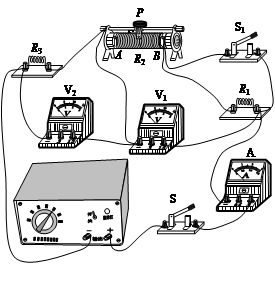阅读下文,完成1~5题.
“统统跪下,你们!”韩国女人的一声大叫,在全车间120名工人耳边响起了一声惊雷。一时间,鸦雀无声。所有的人都呆住了。
金珍仙走向离她最近的一名女工:“你跪下!”女工摇摇头。金珍仙便按着她的头往下压。女工很健壮,金珍仙于是用脚狠狠踢她的腿。女工终于跪倒了。跪下去的时候,屈辱的眼泪流过她的面颊。金珍仙走向第二个工人。那工人也许有过片刻的迟疑,但看一眼正举着双手的工长们和那第一个已经跪下的女工,他,跪下了。
于是,让所有中国人为之心颤的一幕发生了:就像秋天原野上的高粱面对一把锋利的镰刀,那些本该站着的人,一个个倒了下去。金珍仙迈步前行,威风八面。
金珍仙走到孙天帅面前,但孙天帅并未和她预想的那样跪下去。小伙子稳稳地站着,面孔正胀得血一样红。金珍仙停住脚步,目光直直地_________(定格、停留)在孙天帅脸上。这小伙子她熟悉,平时总是一副很文弱、很温和的样子,她不相信这么个打工仔竟敢和她对抗。但很明显的,在他脸上显示出的神情中,金珍仙读出了极度的无法掩饰的愤懑、仇视和厌恶。这不能不让她大吃一惊了。
“你为什么不跪?”
“我为什么要跪?向谁跪?向你吗?为什么?凭什么?”
金珍仙的脸慢慢变白。金珍仙身后的翻译赶紧上来:“快跪吧!要不老板会生气的。”附近几个工友也低声相劝。孙天帅被彻底激怒了。他指着那些已经跪下的人叫:“你们要是还有一点骨气就马上站起来。向一个外国女人下跪,你们的人格和尊严都到哪里去了?”
身前身后,是可怕的沉寂。一百多个先后跪下的人,没有一个敢站起来。孙天帅僵直地站在那里,有一种欲哭无泪的感觉。金珍仙笑了。她觉得4在精神上这个小伙子已经不战自垮,也会像众人一样,跪倒在她的脚下。
“你为什么还不跪下?”
“我决不向你下跪!决不!”
“不跪可以,但你必须马上滚蛋!”金珍仙近乎神经质似的大叫起来。她原以为自己是铁定的赢家。她无法想象她居然会输。这时那个年轻人突然飞起一脚,将台边的凳子踢翻,鄙夷地看了她一眼,一步步向门口走去。
孙天帅突然回过身来,朝着正盯着他发愣的金珍仙说:“听着,”说完,这个骄傲的中国的年轻人,大踏步跨出工厂的大门……
1.金珍仙是怎样的一个人?试从文章找出3处依据。
_____________________________________________________
2.第三段中画横线的比喻句的本体是什么?为什么这样比喻?
_____________________________________________________
3.第四段横线上应填的词是“定格”还是“停留”?为什么选这个词?
_____________________________________________________
4.从文中看,孙天帅的心理前后有哪些变化,从对他的语言、肖像、动作的描写中可以看出他是怎样的一个人?
_____________________________________________________
5.末段画线处的语句正确的句序是:________。
a.你,算是个什么东西?
b.黄河水哺育的儿孙!
c.我是中原大地出生的子民,
d.跪天跪地跪黄河跪父母!
6.围绕“中国人的人格与尊严”这个话题,谈谈你的阅读本文的体会。(不少于120字)
_____________________________________________________
1.骄横的人。“金珍仙便按着她的头往下压”“女工很健壮,金珍仙于是用脚狠狠踢她的腿”“金珍仙迈步前行,威风八面”“不跪可以,但你必须马上滚蛋!”“金珍仙近乎神经质似的大叫起来”
2.工人、金珍仙。表现出对工人的甘受屈辱的痛心,对大发淫威的老板的憎恨。
3.定格:长时间地看,有意外,也想以目光叫他屈服。
4.屈辱、愤懑、仇视、厌恶,有骨气和尊严。
5.c b d a
6.“略”。


 。求:
。求: